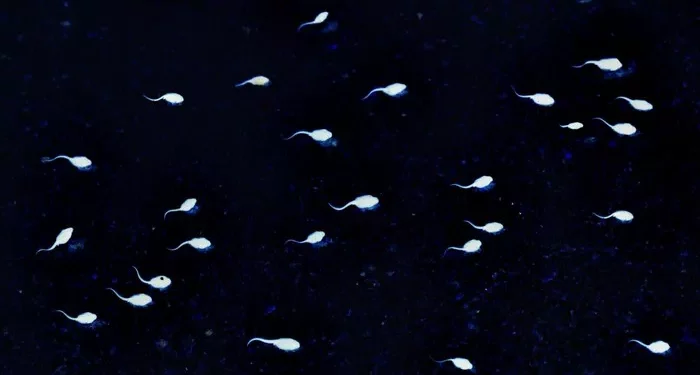Severe oligospermia is a condition characterized by an extremely low sperm count in semen, significantly reducing the chances of natural conception. While a normal sperm count typically ranges from 15 million to 200 million sperm per milliliter, severe oligospermia is diagnosed when the count falls below 5 million sperm per milliliter. This condition is often associated with male infertility and can pose significant challenges for couples trying to conceive.
Causes
Understanding the root causes of severe oligospermia is crucial for effective treatment. Several factors can contribute to this condition, including:
Varicocele: Varicocele refers to the enlargement of veins within the scrotum, which can disrupt normal testicular function and sperm production.
Infections: Certain infections, such as sexually transmitted infections or inflammation of the reproductive organs, can impair sperm production and quality.
Hormone Imbalances: Imbalances in hormone levels, particularly testosterone, follicle-stimulating hormone (FSH), and luteinizing hormone (LH), can affect sperm production.
Lifestyle Factors: Poor lifestyle choices, such as excessive alcohol consumption, smoking, drug abuse, obesity, and exposure to environmental toxins, can contribute to reduced sperm quality and quantity.
Treatment Options
Effective management of severe oligospermia requires a comprehensive approach tailored to individual needs. Treatment options may include:
Natural Remedies: While limited evidence supports the efficacy of natural remedies alone, some lifestyle changes, such as maintaining a healthy weight, exercising regularly, consuming a balanced diet rich in antioxidants, and avoiding excessive heat exposure to the testicles, may help improve sperm parameters.
Pharmacological Options: Medications such as clomiphene citrate, human chorionic gonadotropin (hCG), and aromatase inhibitors may be prescribed to address hormonal imbalances and stimulate sperm production.
Surgical Interventions: Surgical procedures, such as varicocele repair or testicular sperm extraction (TESE), may be recommended to correct anatomical abnormalities or retrieve sperm directly from the testes for use in assisted reproductive techniques.
Assisted Reproductive Technologies (ART): In cases where natural conception is not feasible, ART procedures such as in vitro fertilization (IVF) or intracytoplasmic sperm injection (ICSI) can help overcome infertility by directly injecting sperm into mature eggs for fertilization.
Success Rates
Success rates of treatment for severe oligospermia vary depending on the underlying cause, the chosen treatment modality, and individual factors such as age and overall health. While some couples may achieve pregnancy with conservative measures or pharmacological interventions, others may require more advanced reproductive technologies like IVF or ICSI. According to recent studies, success rates for IVF/ICSI in couples with severe male factor infertility range from 30% to 50%, with higher success rates observed in younger couples and those with fewer additional fertility issues.
Lifestyle Changes
In addition to medical interventions, making positive lifestyle changes can enhance the effectiveness of treatment for severe oligospermia. Suggestions include:
1. Quitting smoking and avoiding exposure to secondhand smoke
2. Limiting alcohol consumption and avoiding recreational drugs
3. Maintaining a healthy weight through regular exercise and a balanced diet
4. Managing stress through relaxation techniques such as yoga or meditation
5. Avoiding tight-fitting underwear and hot baths or saunas, which can elevate scrotal temperature and impair sperm production
Expert Opinions
Medical professionals specializing in male fertility emphasize the importance of a personalized approach to treating severe oligospermia. Dr. Smith, a renowned reproductive endocrinologist, emphasizes the significance of early intervention and comprehensive evaluation to identify and address underlying factors contributing to infertility. According to Dr. Smith, “Tailoring treatment to each patient’s specific needs and addressing both medical and lifestyle factors are essential for optimizing outcomes.”
FAQs
Q1. Can severe oligospermia be cured?
A1: While severe oligospermia may not always be curable, various treatment options can help improve sperm count and quality, increasing the chances of conception.
Q2. Is severe oligospermia hereditary?
A2: While some cases of severe oligospermia may have a genetic component, many are due to environmental or lifestyle factors.
Q3. How long does it take to see results from treatment?
A3: The timeframe for seeing improvements in sperm parameters varies depending on the chosen treatment and individual factors. In some cases, significant improvements may be observed within a few months, while others may require longer-term interventions.
Research and Advances
Ongoing research in the field of male infertility continues to drive advancements in the diagnosis and treatment of severe oligospermia. Recent studies have explored novel therapeutic approaches, such as stem cell therapy and genetic editing techniques, offering promising prospects for improving sperm production and quality.
Resources and Support
For individuals and couples affected by severe oligospermia, accessing support groups and additional resources can provide valuable guidance and emotional support. Organizations such as the American Society for Reproductive Medicine (ASRM) and Resolve: The National Infertility Association offer information, advocacy, and community forums for those navigating infertility challenges.
In conclusion, severe oligospermia presents significant challenges to couples desiring biological parenthood, but with the advancements in medical technology and a holistic approach to treatment, there is hope for achieving successful outcomes. By addressing underlying causes, exploring various treatment modalities, and making positive lifestyle changes, individuals and couples can embark on a journey towards building their families.
Related Topics:
What You Need to Know: Does Anorexia Make You Infertile?



























